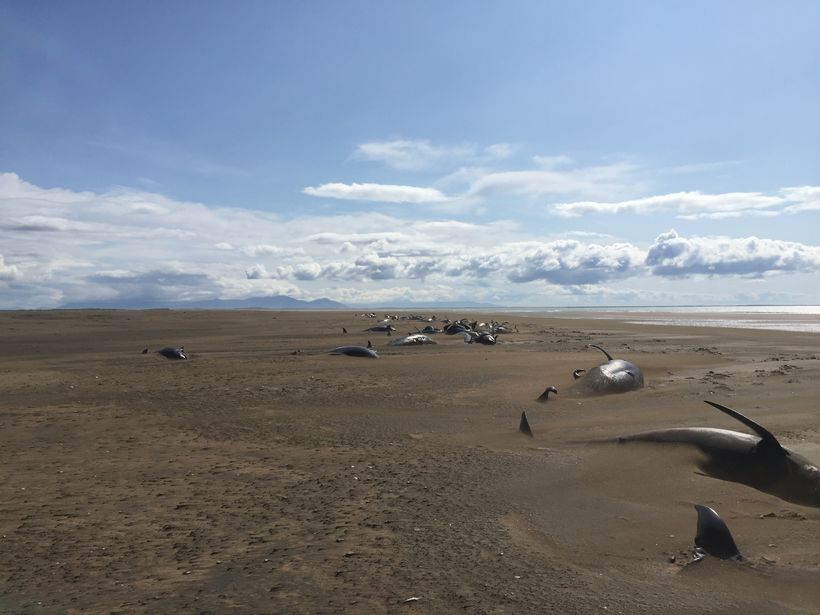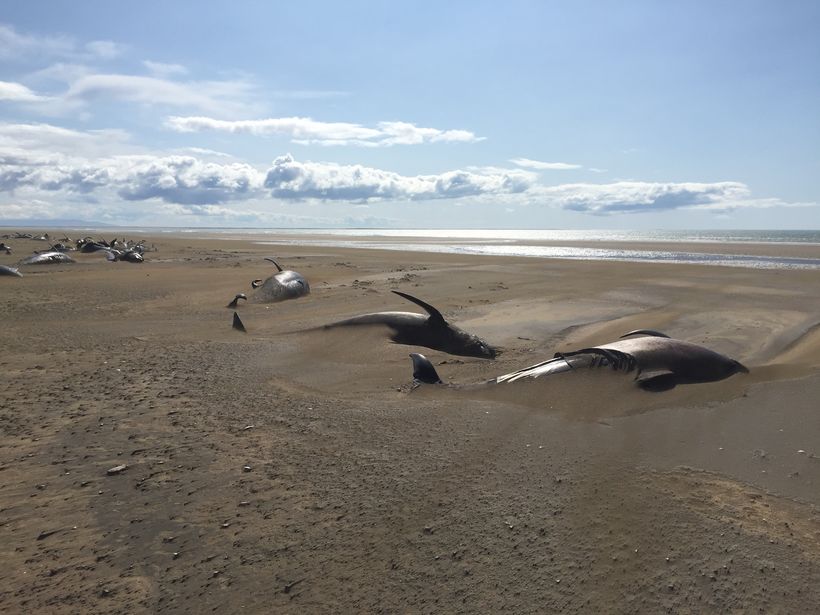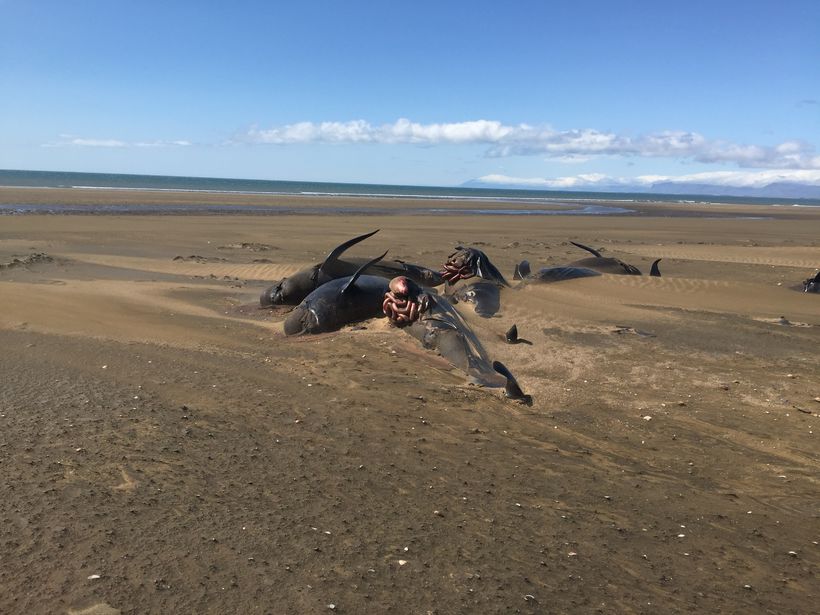Dozens of Beached Whales in Snæfellsnes
Dozens of beached pilot whales were detected on Löngufjörur beach on the Snæfellsnes peninsula, West Iceland, yesterday, Morgunblaðið reports.
A helicopter pilot for Reykjavík helicopters and American tourists onboard the helicopter noticed the whales during a sightseeing flight yesterday. Judging from pictures they took, all the whales are dead. This part of the beach, Gamlaeyri, located on the easternmost part of the south side of the peninsula, is off the beaten path and inaccessible by car. There is little traffic in the area, limited to that of hikers and horse riders.
Arilíus Kristjánsson, farmer at Stóra-Hraun, on the south side of Snæfellsnes, tells Morgunblaðið that he is unaware of whales having beached there before, but adds that it may have happened without anyone having noticed.
Edda Elísabet Magnúsdóttir, marine biologist and whale specialist, states it’s hard to know exactly why the pilot whales beached there. She adds that this is not uncommon in New Zealand. She notes that if the carcasses are examined, it is possible to estimate how long they’ve have been on the beach.
“The most important thing to look at is that these are deep-sea whales, common at the continental margin,” Edda explains. “They mainly feed on squid, which is why they’re good at diving deep. When they enter shallow waters, most of them have a tendency to become disoriented. They use echolocation for orientation, for finding one another, estimating the depth, and so on. But a sloping, sandy bottom appears to increase their disorientation. There are numerous examples of them having beached where there is such a sandy, sloping bottom.”
Edda mentions other factors, such as tide, strong currents and strong winds, which can cause the whales trouble, once they’re in a dangerous zone. She explains that pilot whales swim in unusually tight groups, or schools, which is why there can be many of them beached at once, instead of a single animal.










